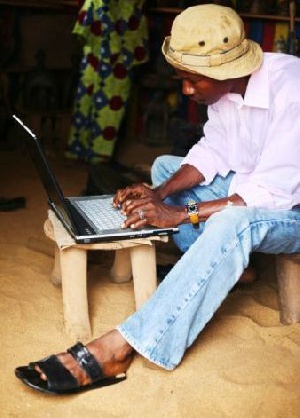CHIEFS AND queens from the southern part of the Volta region have expressed dissatisfaction over the salaries of journalists which they described as “paltry.”
They said considering the responsibilities and contributions of journalists and other media personnel towards the nation’s development “their wages are bad and not befitting.”
Paltry remunerations they noted had subjected journalists and other media personnel to pestering event organizers and politicians among others for payola also known as ‘soli.’
The chiefs and queens numbering about 13 made these observations at Keta during an interaction workshop between the traditional leaders and the media.
They added that the trend had negatively affected the objectivity of the media, particularly journalists who had become the yes-men for the rich.
Consequently, they urged media managers/owners to pay their employees well and charged civil society organizations and the citizenry to fight for the media.
They however complained about the proliferation of unprofessional and charlatan personnel in the media industry saying media houses ought to employ only qualified personnel and pay them well even if they were just a few in number.
Some of the challenges the traditional leaders themselves faced in their dealings with the media they said included the lack of verification with regards to reportage as well as their misinterpretation, misinformation and ignorance about chieftaincy issues.
They however felt that part of the problem stemmed from the fact that many traditional leaders were often under-resourced and hence found it difficult to invite journalists, some of whom demanded money from them, to cover events.
They however praised the media for the support and assistance they had offered the chieftaincy institution over the years despite all these challenges. They noted that some journalists had proved to be “good friends, objective, professional and reliable irrespective of financial support.”
They expressed worry about the way some people and institutions were trying to abolish chieftaincy saying “our only hope of survival is the chieftaincy system, politicians will come and go but the chiefs and queens will always be here to unite the people and so when people try to sabotage the system it becomes very dangerous. Journalists must educate Ghanaians adequately to reverse the trend.”
The journalists and media personnel who numbered about 18 drawn from various parts of the region on their part charged the chiefs and queens to be as accessible as possible to help the media work more effectively with them.
More so, they said since both journalists and the traditional leaders were under resourced, each group should meet each halfway for their mutual benefit.
The two day workshop was organized by the Tongu Youth and Children Evangel (TOYACE) under a project called Munachi, a Swahili word meaning ‘the ordinary citizen.’
Bestway Zottor, General Director of TOYACE said the project was launched by the Overseas Development Institute in 6 African countries including Ghana with funding from the Department for International Development (DFID), UK.
A training officer for World Association of Community Radio Broadcasters-Africa, Kofi Larweh commended the forum which he said had given greater understanding to both groups about each others’ work and the way forward.
General News of Wednesday, 17 October 2012
Source: Daily Guide

















